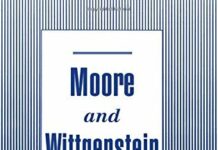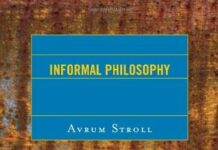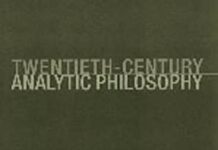
Ebook Info
- Published: 2001
- Number of pages: 304 pages
- Format: PDF
- File Size: 11.16 MB
- Authors: Avrum Stroll
Description
Analytic philosophy is difficult to define since it is not so much a specific doctrine as a loose concatenation of approaches to problems. As well as having strong ties to scientism -the notion that only the methods of the natural sciences give rise to knowledge -it also has humanistic ties to the great thinkers and philosophical problems of the past. Moreover, no single feature characterizes the activities of analytic philosophers. Undaunted by these difficulties, Avrum Stroll investigates the “family resemblances” between that impressive breed of thinkers known as analytic philosophers. In so doing, he grapples with the point and purpose of doing philosophy: What is philosophy? What are its tasks? What kind of information, illumination, and understanding is it supposed to provide if it is not one of the natural sciences? Imbued with clarity, liveliness, and philosophical sophistication, Stroll´s book presents a synoptic picture of the main developments in logic, philosophy of language, epistemology, and metaphysics in the past century. It does this by concentrating on the individual thinkers whose ideas have been most influential. Major themes in Twentieth-Century Analytic Philosophy include: · the innovation of mathematical logic by Gottlob Frege at the close of the nineteenth century and its independent development by Bertrand Russell; · the impact of advancements in science on the world of philosophy and its importance for understanding such doctrines as logical positivism, philosophy of language, philosophy of mind, and eliminative materialism; · the refusal by such thinkers as Wittgenstein, Moore, and Austin to treat logic as an ideal language superior to natural languages; and · a conjecture about which, if any, of the philosophers discussed in the book will enter the pantheon of philosophical gods. Along the way, Stroll also covers the theories of Rudolf Carnap, W. V. O. Quine, Gilbert Ryle, J. L. Austin, Hilary Putnam, Saul Kripke, John Searle, Ruth Marcus, and Patricia and Paul Churchland. Stroll´s approach to his subject treats the critical movements in analytic philosophy in terms of the philosophers who defined them. The notoriously complex realm of analytic philosophy emerges less as an abstract enterprise than as a domain of personalities and their competing methods and arguments. The book´s inventive presentations of complex logical doctrines relate them to the traditional problems of philosophy, seeking the continuity between them rather than polemical distinctions so as to bring the true differences of their respective achievements into sharper focus.
User’s Reviews
Editorial Reviews: Review “No other book has canvassed the last century as Stroll has, and with such insight. Written with wit and verve, Stroll’s book is informative and eloquent.” — “Journal of the History of Philosophy””No other book has canvassed the last century as Stroll has, and with such insight. Written with wit and verve, Stroll’s book is informative and eloquent.” — Journal of the History of Philosophy”No other book has canvassed the last century as Stroll has, and with such insight. Written with wit and verve, Stroll’s book is informative and eloquent.” — “Journal of the History of Philosophy” About the Author Avrum Stroll is Research Professor of Philosophy at the University of California, San Diego. A distinguished philosopher and a noted scholar in the fields of epistemology, philosophy of language, and twentieth-century analytic philosophy, he is the author of many books, most recently Surfaces, Moore and Wittgenstein on Certainty, and Sketches of Landscapes: Philosophy by Example.
Reviews from Amazon users which were colected at the time this book was published on the website:
⭐I’d actually give this book three and a half stars if I could. It’s kind of a mixed bag — the good sections (like the section on Austin) combine clear introductory overviews with insightful critical observations. But the not-so-good sections (like the section on Carnap) are muddled, assume too much knowledge, and will just be confusing to someone who’s not well-versed in the topic already. The whole book’s like that — some interesting, clear, enlightening paragraphs alternating with some murky, poorly-explained, head-scratching paragraphs. Not bad if you’re looking for some insights on 20th century analytic philosophers, but not great for a first intro. (Btw, a fair amount of the book is taken from Stroll’s section on 20th century analytic philosophy in the Columbia History of Western Philosophy. That section is shorter than this book, but I found it more clearly written and structured and a much better overall read, albeit with a few details missing that you get in this book.)
⭐For the student of philosophy, this book together with a collection of original papers could make a very good introduction to analytic philosophy. For the professional philosopher and others with good knowledge of twentieth century analytic philosophy, it could serve as a roadmap to compare with your own understanding.In spite of a subject, which, in some ways, could be boring, I find this book often very fun and amusing. So far as I can understand it is also written with very good understanding and insight in to it’s subject.The chapter on the future of analytic philosophy and the question of which philosophers who will be still famous in the future is well argued and very interesting. And Yes, if you placed your money on Wittgenstein as a star of philosophy in year 2200 there are god arguments that you have made a good investment.
⭐An effort to introduce 20th century analytic philosophy to a broad audience. Stroll discusses several important philosophers/schools chronologically starting with Frege and Russell, and concluding with recent work on philosophy of mind and perception. Frege, Russell, Moore, Wittgenstein, the Logical Positivists (particularly Carnap), Quine, Ryle, and Austin are all discussed. For each philosopher/group discussed Stroll provides some biographical information and a discussion of important ideas. Recurring themes are the importance of formal logic, philosophy of language, a generally empirical orientation, and admiration for science as a model of inquiry. Stroll adds some of his own criticism. In general, these parts are generally done though a bit uneven. I’m not sure how much the biographical detail adds in most cases and would have preferred more discussion of individual concepts. I’d also prefer a more systematic approach following the evolution of themes.One comment. Stroll concludes with a section discussing contemporary philosophy and pointing out the absence of towering figures but the presence of many philosophers working in relatively narrow niches. He finds this surprising. It shouldn’t be and is driven probably by 2 factors. One is the enormous post-WWII expansion of higher education that provides employment for a substantial number of philosophers. The second is that philosophers, deliberately or not, are emulating the success of the natural sciences.
⭐Twentieth-Century Analytic Philosophy by Avrum Stroll is a useful but limited guide to the history of 20th century analytic philosophy. Stroll deals only with some of the giants. He explicitly limits his treatment to Frege, Russell, Moore, Wittgenstein, Carnap, Austin, Ryle, and Quine. These are indeed leading analytic philosophers but many other leading analytic philosophers are left out or only mentioned: Strawson, Grice, Rorty, Davidson, Putnam, Ayer, Rawls, Hare, Hart, Berlin, and so on. Furthermore Stroll almost entirely ignores 20th century analytic ethics. Rawls, who’s stature is equal to Carnap, Austin, or Ryle, is never even mentioned anywhere in the book. Broad has more entries in the index than does Strawson.Despite the claims of the author this is not a book for the general reader. The treatment assumes a good background in philosophy and a command of the technical vocabulary used by philosophers. This is a book for the philosophy grad student or teacher who wants a good overview of some main threads in analytic philosophy. It would not be appropriate for use as a text in an undergrad course.For the most part Stroll’s expositions are clear and correct, direct and fair. He is especially good on Russell’s early philosophy, Frege, Austin, and some of Carnap. His explanations of e.g. Russell’s theory of descriptions, Austin’s treatment of speech acts, Wittgenstein’s Tractatus are very useful.In the final chapters Stroll considers the direct reference theories of Kripke and Putnam. These sections are especially weak. He does not understand what the new theory of reference is about. These sections are not historical expositions but critical engagements as Stroll acknowledges. Stroll’s criticisms of direct reference theories are simple-minded and incorrect, especially his discussion of natural kind terms.Stroll’s writing is elegant in places and extremely awkward in others. The book has no introduction as such. The title of the first chapter is “The Solera System.” The Solera System is something used by Sherry makers and Stroll imagines that this illuminates the relations between traditional philosophy and 20th century analytic philosophy. This is a conceit or metaphor that recurs in several places in the text. I did not find it at all helpful. Nowhere does Stroll tackle the really interesting and deep questions about analytic philosophers’ rejection of traditional philosophy, the relations between analytic and continental philosophy, nor the struggle of later analytic philosophy with and against its origins.As I said this is a limited overview of analytic philosophy.
Keywords
Free Download Twentieth-Century Analytic Philosophy in PDF format
Twentieth-Century Analytic Philosophy PDF Free Download
Download Twentieth-Century Analytic Philosophy 2001 PDF Free
Twentieth-Century Analytic Philosophy 2001 PDF Free Download
Download Twentieth-Century Analytic Philosophy PDF
Free Download Ebook Twentieth-Century Analytic Philosophy


